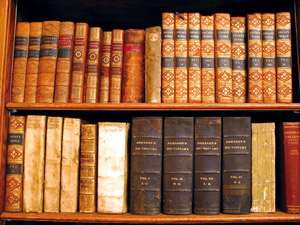Books - food for the mind
While we were busy celebrating avurudu and gorging on all the lovely
delicacies, an important world event passed us by. This event was also
very important, because it celebrated books, the food for our minds.
 The importance of books and authors was highlighted when the United
Nations Educational, Scientific and Cultural Organisation (UNESCO)
observed World Book and Copyright Day on April 23. The day, also known
as the International Day of the Book and World Book Day, was organised
by UNESCO for the 13th time this year, to promote reading, publishing
and the protection of intellectual property through copyrights. The importance of books and authors was highlighted when the United
Nations Educational, Scientific and Cultural Organisation (UNESCO)
observed World Book and Copyright Day on April 23. The day, also known
as the International Day of the Book and World Book Day, was organised
by UNESCO for the 13th time this year, to promote reading, publishing
and the protection of intellectual property through copyrights.
The date is symbolic for world literature as it was on April 23 that
giants in the literacy field such as Miguel de Cervantes, William
Shakespeare and Inca Garcilaso de la Vega died. The day also marks the
births and deaths of several prominent authors like Maurice Druon,
Laxness, Vladimir Nabokov, Joseph Pla and Manuel Mejia Vallejo.
The idea for the celebrations was first arrived at in the Spanish
city of Catalonia, where on April 23 (St. George’s Day), a rose used to
be given as a gift for every book sold. An old custom here was for men
to give their lovers roses and the women to gift them books.
The official UNESCO celebrations were initiated in 1995. Now,
millions of people including schoolchildren from over 100 countries in
the world observe the event. Now you may be wondering what a copyright
is.
It is the sole right given to a creator of some work to print,
publish, perform or profit from that work. The protection offered by
copyrights and neighbouring rights is essential for enhancing individual
creativity, the development of cultural industries and the promotion of
cultural diversity.
Widely prevalent piracy (reproduction and distribution of material
without proper authorisation) and the low enforcement of copyright laws
are destroying the incentive to create and distribute local cultural
products in all countries. This creates the need for efforts to
encourage creativity to foster sustainable development.
The Universal Copyright Convention, implemented in 1952 under the
aegis of UNESCO to promote copyrights, conducts awareness raising and
capacity building projects and information training and research in the
field of copyright law. It is also developing new initiatives to help
fight piracy. |
